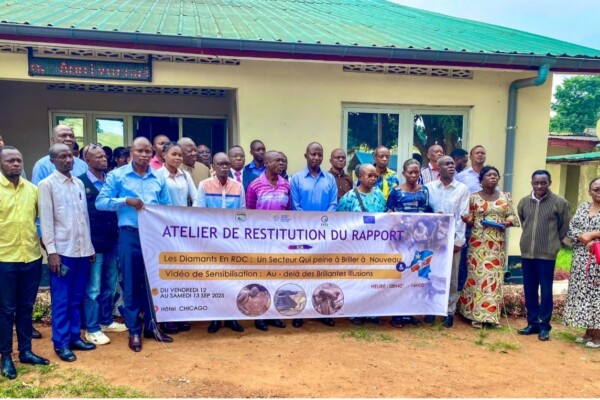
From decline to development: Reviving the diamond sector in Kasaï Oriental
December 17, 2025Earlier this year, IPIS published a report, “Diamonds in the DRC: A sector struggling to shine again”, which analyzed the current dynamics in the DRC’s diamond mining sector, including production trends, key challenges for both the large-scale (LSM) and artisanal and small-scale mining (ASM) sectors, as well as efforts and opportunities to revive the sector and increase its impact on local develop
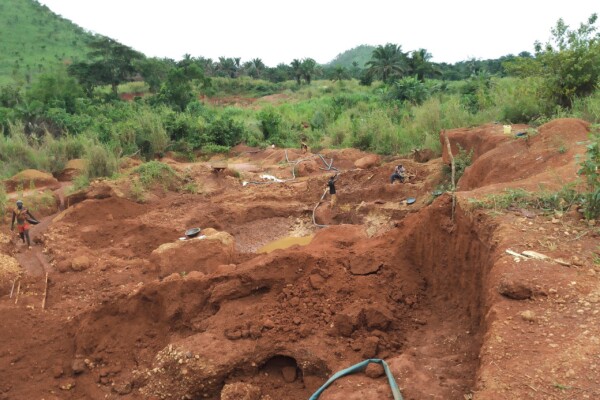
Mapping artisanal mining sites in the Kibali gold mine concession in Faradje territory, Haut-Uélé, DRC
December 8, 2025In the Faradje administrative territory in the northeastern Democratic Republic of Congo’s Haut-Uélé province, more than 5,000 people rely on artisanal gold mining to earn a living and support their families. Many artisanal-mining families have done so for generations. They currently work on sites that now fall largely within mining permits owned by Kibali Goldmines (Kibali), a joint venture of Ba

Voix du Congo – The smuggling of coltan from South Kivu to Rwanda: Routes, factors, and implementation
July 22, 2025The escalation of conflict in eastern DRC has sparked increased media attention on coltan and its role as a driver of violence. While most coverage has focused on the production and (il)legal trade of coltan in North Kivu, smuggling is also widespread in South Kivu. This report examines the key smuggling routes, contributing factors, and practices.

Impact of Unconditional Cash Transfers on socio-economic and subjective well-being in an artisanal mining community in the DRC: Highlights from a midline assessment
July 18, 2025Cash transfer programmes that provide financial support directly to households have been implemented in many countries as an alternative strategy to fight poverty and to strengthen social protection. In 2021, the Belgian non-profit organisation Eight launched a UCT programme in an artisanal mining zone in the province of Maniema, in the Democratic Republic of Congo. IPIS conducted a pilot and cont

Diamonds, conflict and crime in the Central African Republic: The lifting of the last Kimberley Process embargo
June 17, 2025For over a decade, the Central African Republic (CAR) has been at the center of international efforts to curb the trade in conflict diamonds. In 2013, the Kimberley Process (KP) imposed a rough diamond export embargo following a violent coup and widespread reports of rebel financing through diamond mining and trade. While the embargo was partially eased between 2015 and 2019, further progress stal

Diamonds in the DRC: A sector struggling to shine again
April 23, 2025The Democratic Republic of the Congo (DRC) is an important player in the global diamond industry, with considerable untapped potential. This report discusses the current state of play in the DRC’s diamond mining sector, including production trends, key challenges, as well as efforts and opportunities to revive the sector and to increase its impact on local development and socio-economic well-being

KUFUATILIA expands to Tanzania: Strengthening civil society monitoring and community support in the mining sector
April 2, 2025In March 2025, IPIS successfully launched KUFUATILIA, its civil society organization (CSO) incident monitoring scheme for the mining sector, in Tanzania’s Mara region. KUFUATILIA is a community-based incident reporting system designed to facilitate real-time, structured reporting by community members through mobile phones.

Kimberley Process lifts conflict diamonds embargo on the Central African Republic – Q&A
December 4, 2024At its 2024 plenary meeting in Dubai, the Kimberley Process (KP) decided to lift the 11-year-old embargo on rough diamond exports from the Central African Republic. What were the driving factors behind this decision, and what are its implications? In this Q&A, IPIS delves into the background of the embargo, its impact and effectiveness, the rationale for its removal, and the potential consequences
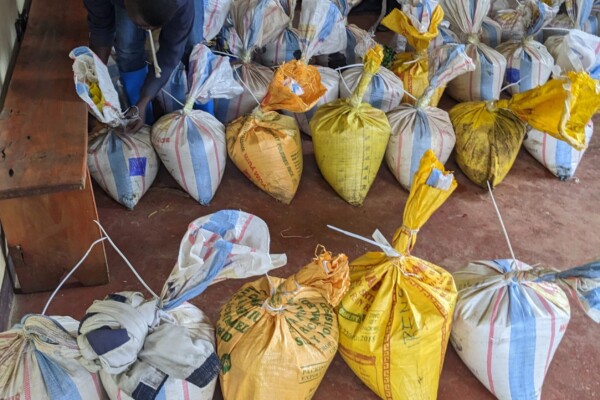
EU acknowledges shortcomings of Conflict Minerals Regulation: What next?
December 4, 2024The European Union’s ‘Conflict Minerals’ Regulation (CMR), which came into effect in January 2021, aims to prevent the trade in minerals that finance armed conflict and human rights abuses. However, both a formal evaluation by the European Commission and one conducted by civil society (IPIS/PAX, 2023), highlight significant shortcomings in the implementation and impact of the Conflict Minerals Reg
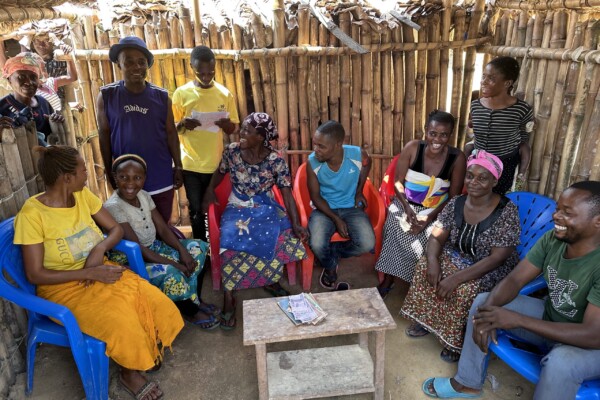
Unconditional Cash Transfers (UCT) in the DRC: A pilot study assessing the socio-economic effects in an artisanal mining zone of Maniema Province
October 16, 2024Building on previous experience in Uganda, the Belgian organisation Eight World vzw started in October 2021, an Unconditional Cash Transfer (UCT) pilot project in a village in an artisanal mining zone in the territory of Pangi, in Maniema province, in the eastern Democratic Republic of Congo (DRC). IPIS has undertaken a comprehensive study to evaluate key indicators related to the socio-economic,

Voix du Congo: Child labor in artisanal gold mines in the Mariminza chiefdom, Watsa territory: case studies of Menze and Babarau
July 16, 2024This research raises the issue of child labor in the artisanal mines in the chiefdom of Mariminza, using the examples of the Menze and Bararau quarries (Watsa territory, Haut-Uélé province). Using a qualitative approach based on several field interviews and a literature review, the study identifies the causes of child labor and its consequences for children’s future in order to propose preventive
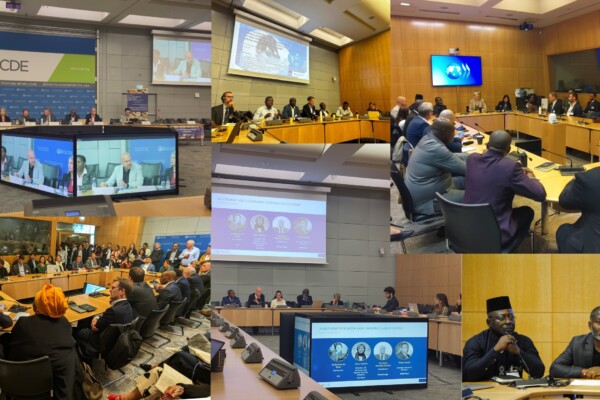
Highlights from the OECD Forum on Responsible Mineral Supply Chains
May 31, 2024Last week, representatives of civil society, industry, and governments gathered at the 2024 OECD Forum on Responsible Mineral Supply Chains in Paris. Members of the IPIS team attended to stress the need for investments in artisanal mining in producer countries, reflected on what strategic mineral partnerships should look like, and underlined the importance of better monitoring the impacts of minin
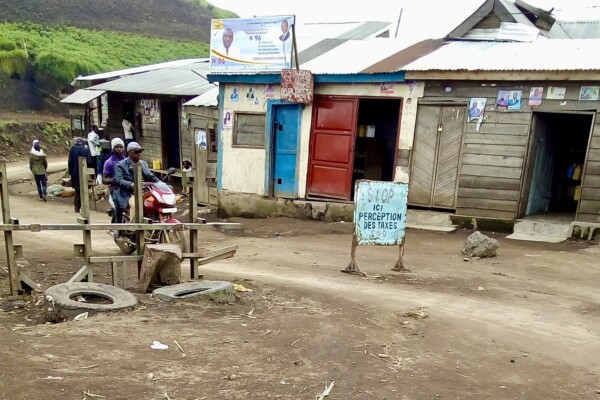
Roadblocks in Masisi and Walikale: Predation on movement in turbulent times
March 8, 2024While minerals have centered in research on conflict financing in the Democratic Republic of the Congo, armed actors often rely on alternative sources of revenue to finance their struggles. Among these are the operation of roadblocks. In this report, produced together with ASSODIP and the Danish Institute for International Studies, IPIS studies the linkage between roadblocks and the local artisana
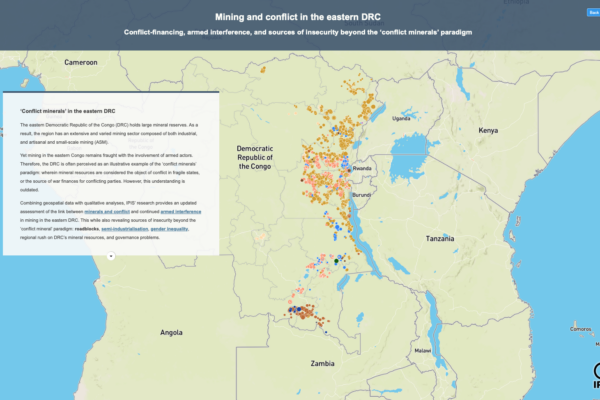
Mining and conflict in the eastern DRC: An interactive story map
February 15, 2024Conflict-financing, armed interference, and sources of insecurity beyond the ‘conflict minerals’ paradigm In this story map, IPIS presents its findings on the linkage between mining and conflict-financing in the eastern Democratic Republic of the Congo (DRC). Based on a survey conducted between 2021-2023 of 829 active mining sites (representing over 132,320 artisanal miners), IPIS’ research provid
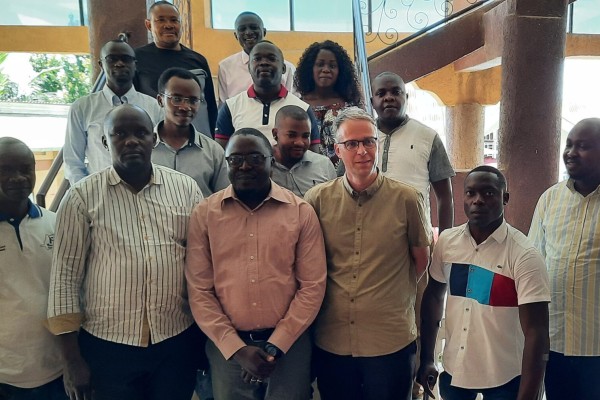
Kufatilia evolves into a civil society network, now equipped with a new platform to follow up on mining incidents
January 19, 2024First annual meeting of the newly established Kufatilia network In November 2023, IPIS’ Kufatilia partners traveled to Bunia and Bukavu in the eastern Democratic Republic of the Congo (DRC) to attend the first annual meeting of the newly established Kufatilia network. Consisting of two separate conferences in Ituri and South Kivu, the meeting brought together twenty-two partnered Congolese civil s
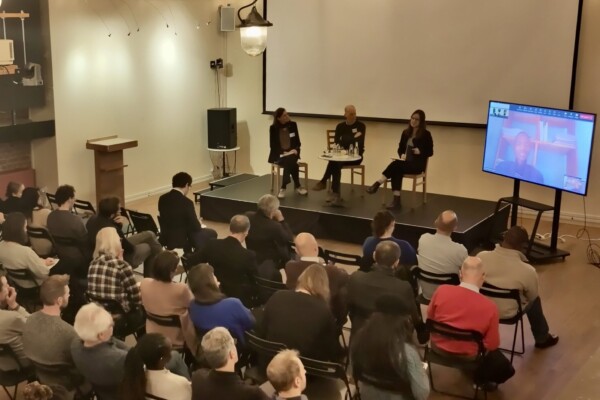
IPIS Event: Congolese cobalt, EU regulations, and direct investment
January 9, 2024On the 30th of November, IPIS hosted its annual panel discussion, this time on current challenges facing the cobalt sector in the Democratic Republic of the Congo (DRC) and the potential impact of European Union (EU) regulations to improve these. Moderated by Lotte Hoex, the panel consisted of Esperant Mwishamali, independent researcher on cobalt artisanal and small-scale mining (ASM) in the DRC,
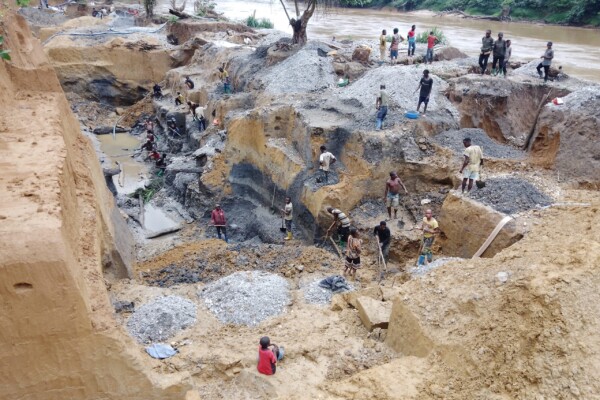
Analysis of the interactive map of artisanal mining areas in eastern Democratic Republic of Congo (2023 update)
December 22, 2023Since 2009, IPIS has mapped and collected data at more than 2,800 Artisanal and Small-scale Mining (ASM) sites in the eastern Democratic Republic of the Congo (DRC). In this report, IPIS provides its 2023 update of the state of ASM in the eastern DRC, based on data from over 829 ASM sites in the eastern DRC between 2021-2023. The study analyses linkages between mining, conflict, and insecurity in

Increasing awareness of policy reforms on gender equality issues in artisanal and small-scale mining in eastern DRC: Case study of the Numbi, Nzibira and Nyabibwe sites
December 13, 2023The mineral resources of the eastern Democratic Republic of the Congo’s (DRC) provide an important source of employment for both men and women involved in artisanal and small-scaling mining (ASM). Yet opportunities are not equal for men and women. Based on a series of interviews with various ASM stakeholders at the mines of Numbi, Nzibira and Nybibwe in the province of South Kivu, this
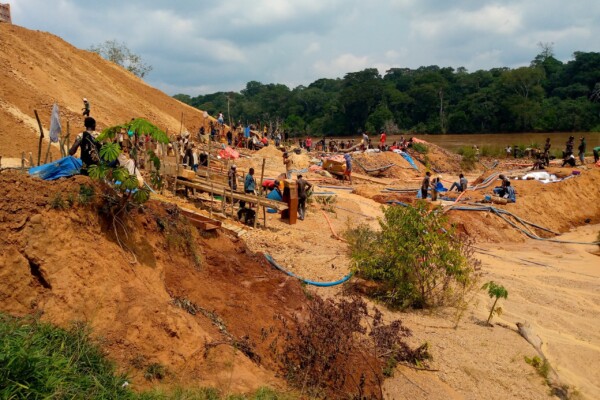
Mapping of artisanal mining sites in western Mambasa, Ituri Province, Democratic Republic of the Congo
October 27, 2023The western part of Mambasa territory, in Ituri province, has been overlooked by national authorities and international partners. This despite major expansions of artisanal and small-scale gold mining (ASM) operations, including in the Okapi Wildlife Reserve (OWR). These mining operations have caused tensions between native inhabitants, miners, armed actors, officials and conservationists. Se
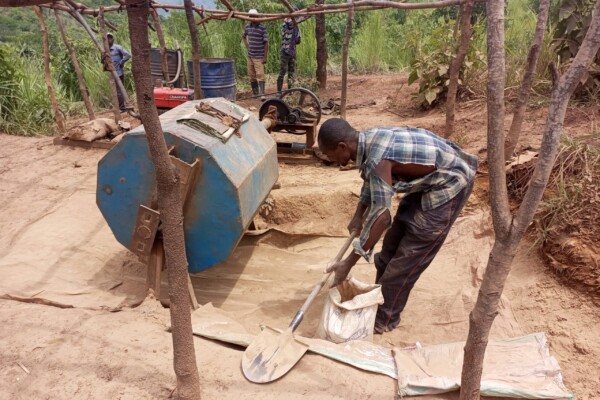
Securing insecurity: Semi-industrial gold mining and violence in Mwenga, South Kivu, Democratic Republic of Congo
October 5, 2023Since 2011, gradual introduction of novel mining equipment such as crushing mills has led to the increasing mechanization of artisanal gold mining operations in Mwenga territory (South Kivu), including the arrival of semi-industrial mining companies. This report is part of a USAID-funded project examining the linkage between armed conflict, insecurity and natural resource exploitation in the easte

